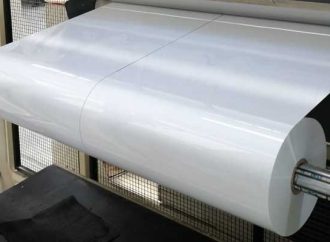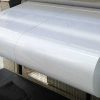From the sound of its roaring engine to the feel of its powerful acceleration, driving a Porsche is an exhilarating experience. But as more cities and countries plan on implementing bans on combustion engines in the coming years, many Porsche enthusiasts are left wondering what the future holds for their beloved sports cars. Fortunately, Porsche
From the sound of its roaring engine to the feel of its powerful acceleration, driving a Porsche is an exhilarating experience. But as more cities and countries plan on implementing bans on combustion engines in the coming years, many Porsche enthusiasts are left wondering what the future holds for their beloved sports cars. Fortunately, Porsche has been leading the charge in developing sustainable solutions that will allow drivers to continue enjoying their high-performance vehicles without harming the environment. In this blog post, we’ll explore why Porsche is championing e-fuels – a promising alternative to traditional gasoline – and how these fuels could revolutionize the automotive industry.
Porsche’s commitment to e-fuels
Porsche is committed to developing and providing e-fuels as an alternative to traditional petrol and diesel fuels. Porsche believes that e-fuels can help to reduce emissions from internal combustion engines, and thus help to address the issue of climate change.
Porsche has been working on e-fuel technology for many years, and has developed a number of prototypes and test vehicles. In 2015, Porsche launched its first production car with an e-fuel option, the Panamera S E-Hybrid. This was followed by the launch of the Cayenne S E-Hybrid in 2016. Porsche is also working on a prototype 911 GT3 with an e-fuel option.
E-fuels are made from renewable energy sources, such as solar or wind power. They can be used in any internal combustion engine, without the need for modifications. E-fuels produce significantly lower emissions than petrol or diesel fuel, making them a cleaner option for road transport.
Porsche is currently working with partners in Europe and the USA to develop a network of e-fuel filling stations. This will make it easier for drivers of Porsche cars to refuel with e-fuels, and will help to increase demand for these cleaner fuels.
What are e-fuels?
E-fuels are synthetic fuels that can be used in place of traditional petroleum-based fuels. They are made by combining hydrogen and carbon, and can be used in any internal combustion engine.
Porsche is a big proponent of e-fuels, as they offer a way to keep performance cars on the road even if bans on combustion engines are enacted. E-fuels produce far fewer emissions than petrol or diesel, making them a more sustainable option for motoring.
There are currently two types of e-fuel available: methanol and ethanol. Methanol is the most commonly used type, as it can be easily produced from natural gas. Ethanol is made from biomass, such as corn or sugarcane.
Porsche is currently testing both types of e-fuel in its race cars, with the aim of eventually using them in production vehicles. The company is also working on developing new types of e-fuel that could be even more efficient and environmentally friendly.
How do e-fuels compare to electric vehicles?
Electric vehicles are often touted as the future of automotive transportation, but they have a few drawbacks that make them less than ideal for many drivers. One such drawback is range anxiety – the fear of running out of charge while on the road. E-fuels, also known as synthetic fuels, can help to address this issue by providing a backup source of power for electric vehicles.
E-fuels are created through a process of electrolysis, which splits water molecules into hydrogen and oxygen. The hydrogen can then be combined with CO2 to create a variety of different hydrocarbon compounds, including methanol, ethane, and propane. These compounds can be used in internal combustion engines, just like traditional gasoline or diesel.
The main benefit of e-fuels is that they produce far fewer emissions than traditional fossil fuels. In fact, when burned in an internal combustion engine, e-fuels can emit up to 90% less carbon dioxide than gasoline or diesel. This makes them an attractive option for drivers who are looking to reduce their environmental impact.
E-fuels are not without their drawbacks, however. One major issue is cost – e-fuels are currently much more expensive to produce than traditional fossil fuels. This means that they are not yet widely available, and may not be realistic for mass adoption in the near future. Additionally, e-fuels still produce some emissions when burned, so they are not a perfect solution for the environment. Nonetheless
Why are e-fuels a better option than electric vehicles?
Electric vehicles are not the only sustainable option for transportation – e-fuels are a much more versatile and environmentally friendly solution. Here’s why:
1. E-fuels can be made from renewable sources like solar and wind power, whereas electric vehicles rely on electricity from coal-fired power plants (which produce emissions).
2. E-fuels can be used in any combustion engine vehicle, making the switch to sustainable transportation much easier for everyone.
3. Unlike electric vehicles, e-fuels don’t require any infrastructure changes (like installing charging stations).
4. E-fuels produce zero emissions when burned, making them a much cleaner option than even the best electric vehicles.
5. Finally, e-fuels are much cheaper to produce than electric vehicles, making them a more affordable option for consumers.
Porsche’s plans for the future
Porsche is one of the most prolific sports car manufacturers in the world, and they’re not content to rest on their laurels. The company is always looking for ways to improve its cars and stay ahead of the curve, and that means being at the forefront of new technologies.
One area where Porsche is making big strides is in the development of e-fuels. These are alternative fuels that can be used in place of traditional gasoline or diesel, and they have the potential to significantly reduce emissions from combustion engines.
Porsche is already using e-fuels in its 911 GT3 R race cars, and it plans to roll out the technology across its entire lineup in the coming years. The company is also working on infrastructure projects to make e-fuels more widely available, so that other motorists can take advantage of them as well.
E-fuels are an important part of Porsche’s strategy to reduce emissions and meet future regulations on combustion engines. By investing in this technology now, Porsche is ensuring that it will be able to continue building amazing cars for years to come.
Conclusion
Porsche has demonstrated a commitment to finding practical solutions for the combustion engine bans in place across many countries. Through their research and development of e-fuels, they are leading the charge in reducing emissions and promoting cleaner energy sources. While it is unclear if this solution will become widespread, one thing is certain: with more companies like Porsche taking proactive steps towards understanding our environment and how we can protect it, we may be able to make real headway on climate change issues.





















Leave a Comment
Your email address will not be published. Required fields are marked with *